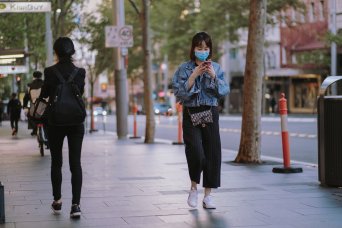- About
- Topics
- Picks
- Audio
- Story
- In-Depth
- Opinion
- News
- Donate
- Signup for our newsletterOur Editors' Best Picks.Send
Read, Debate: Engage.
| topic: | Freedom of Expression |
|---|---|
| located: | Hong Kong, China |
| editor: | Sun Ma |
A veteran Hong Kong opera star Kar-ying Law apologised on China’s Twitter-like platform Weibo earlier this month for making remarks of mourning for Britain’s late Queen Elizabeth II “without thinking it through” on Instagram, which is a banned platform in China.
This is just another apology by celebrities to the “Little Pink” – which is the name given to the internet “troll” group that blindly supports and vehemently defends the Communist Party in China, whose constant bullying and forced censorship signifies to some that free speech in the semi-autonomous city is fading day by day.
The power of the Little Pink has been proven to be a strong pressure on the Chinese community. Unlike celebrities in the West, cultural workers in Hong Kong and China nowadays, regardless of their popularity, are afraid of expressing opinions even when they are not politically sensitive. The political atmosphere is so overwhelming that people suppress their thoughts, in fear of being clamped down by the arbiter, Beijing, which has a track record of “cancelling” celebrities for similar claims.
Earlier this month, thousands of Hong Kongers queued up outside the former colony’s British consulate to pay their respects to the late Queen. Among them was the 75-year-old Law, a prominent figure of Cantonese opera. He posted a selfie on Instagram from the queue and wrote, “When she ascended to the throne, I was seven years old. In these 70 years, the British queen was my elder, witnessing my growing up and getting old. Hong Kong, under her protection, was a place of good fortunes.”
The post went viral on Weibo provoking waves of criticism from Little Pink. Two days later, Law bowed to pressure and posted a video of himself apologising in front of the camera. “I can’t possibly forget my origin and ancestry. That I have been keeping a Chinese passport says it all, I am Chinese and I love my motherland forever. I am sorry,” he said.
The Little Pink group seems to have associated giving condolences to the queen – whose reign during colonial times was seen by some Hong Kongers as a period of social liberty for the former colony – to forgetting one’s Chinese ancestry. It is not logical, but the Little Pink is good at forcing apologies, even when they are uncalled for.
Law’s case is not unique: last year, the 15-year-old son of Anita Yuen, a heavyweight Hong Kong film actress, responded “not right now” when he was asked whether he was in China, in an Instagram post with a photo of Hong Kong. The Little Pink accused him of supporting Hong Kong independence and the family had to apologise on Weibo.
Celebrities who feel like they have too much to lose have to apologise for even vaguely anti-China comments to ease the attacks from the Little Pink. Normal residents are increasingly performing self-censorship on social media: many invented terms to commemorate the Tiananmen Square Massacre online, but they were quickly shut down and banned on Weibo.
Since the attacks from the Little Pink are often unimaginably swift and massive, some suspect them to be a centralised internet force orchestrated by the Chinese government. However, there has been no proof to substantiate such claims.
Social media should be a platform for netizens to exchange ideas and for celebrities to communicate with followers. People should not have to apologise for their legitimate thoughts and claims. Unfortunately, those in Hong Kong live in fear of speaking their mind, and a massive exodus has emerged since 2019, one of the main drivers of which is the pursuit of a higher level of speech freedom.
Photo by Kate Trifo
Read next: How press freedom in Hong Kong suffocates under China

